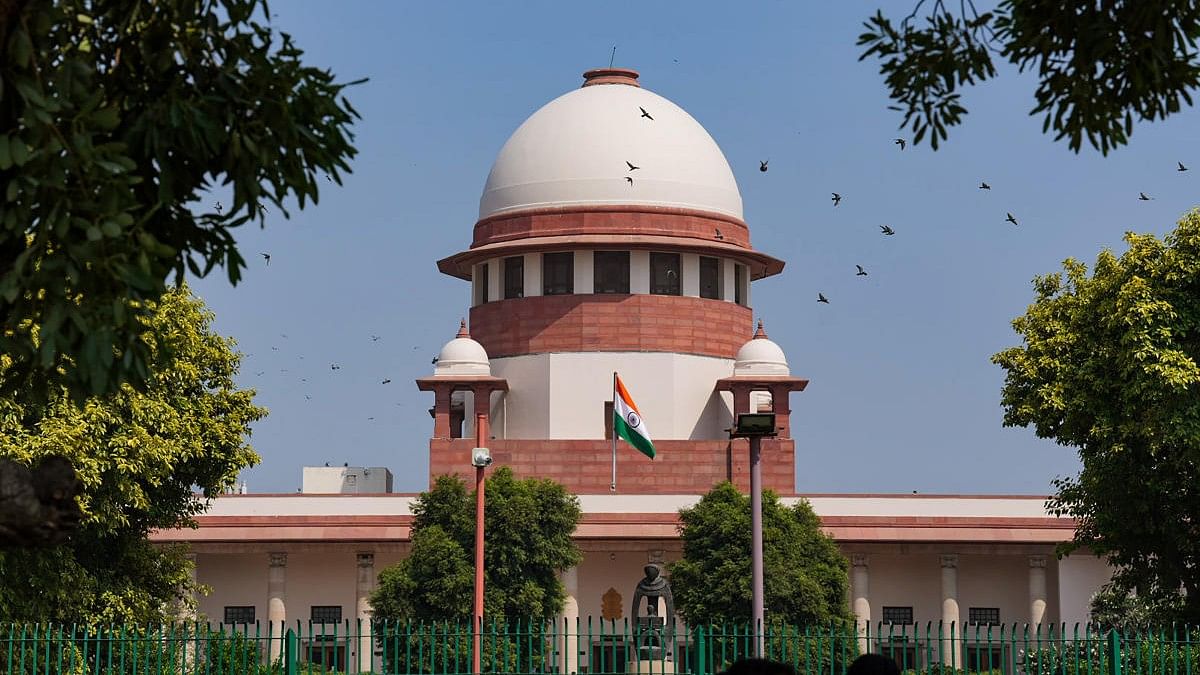
Supreme Court.
Credit: PTI Photo
The Supreme Court on Thursday said that judicial review must be confined to a constitutional violation, while wondering if it could invited to review the wisdom of the decision of the central government to dilute Article 370, which granted special status to the erstwhile state of Jammu and Kashmir.
On the seventh day of hearing the challenge to the Centre's August 5-6, 2019 decisions, the top court pointed out that it would not be correct to postulate that Article 370 achieved its life, and what is a temporary provision can assume the state of permanence in the Indian constitutional fabric.
A five-judge bench of Chief Justice of India D Y Chandrachud and Justices Sanjay Kishan Kaul, Sanjiv Khanna, B R Gavai, and Surya Kant asked senior advocate Dushyant Dave, representing one of the petitioners, if he was inviting the court to review the wisdom of the decision of the government on the abrogation of Article 370 itself.
The bench asked him if he was saying that the judicial review should reassess the basis of the government’s decision that it was not in national interest to continue with Article 370.
"The judicial review must be confined to a constitutional violation”, the bench said, adding, “constitutional violation is certainly open to judicial review...there is no doubt if there is constitutional violation this court has jurisdiction to review undoubtedly”.
The bench further asked Dave if he is focussing on the wisdom underlying the decision to abrogate.
Dave, for his part, said there is no question of wisdom.
"...the President exercised his powers without any material whatsoever," he said, citing the Centre’s counter affidavit and claiming it is a bundle of contradictions.
"Do we really need to labour on the counter? We have to interpret the constitutional provision as it stands, how is this relevant," the bench asked Dave, who said there is no reason available in the presidential exercise, nor is any given in the counter.
Dave said there is no doubt that Article 370 has worked very well and since 1947 there has been no difficulty in the relationship between Jammu and Kashmir and the Centre - and Article 370 must continue to work.
“Your whole argument is that Article 370 has worked itself out once the CA completed its task. But that would be belied at least by constitutional practice. Because even after 1957, there were orders issued progressively modifying the provision of the Constitution in relation to J&K, which means that Article 370 had continued to operate even thereafter. Therefore, it would not be correct to postulate that Article 370 achieved its life and what is a temporary provision assumes the state of permanence in the Indian constitutional fabric,” the bench further told Dave.
The bench said there was no question of any constitutional order being issued progressively from 1954 onwards.
"If your argument is right then once the CA in 1957 takes its decision there is no power to change any provision of the Constitution in relation to J&K," the bench asked him further.
The bench also told Dave that his submission is that once the Constituent Assembly made its decision, there was no question of invoking the proviso to clause (3) and Article 370 becomes a permanent feature.
"There is one inconsistency in accepting that submission. Because if it is right, the consequence once the CA completed it task in 1957 there could be amendment to the Constitution at all under clause 2 of Article 370, which is belied not merely by constitutional practice but the acceptance by both J&K and government of India that amendments were made to the Constitution even after 1957 until the dispute amendment of 2019,” the bench said.
The bench said there has to be a logical consistency in how we interpret Articles 370(1), (2), (3) as post the Constituent Assembly dissolution, it was said that there was no power to make any changes pertaining to J&K at all.
Dave contended that the power to abrogate Article 370 does not lie with the President and that only the CA could have exercised the same.
